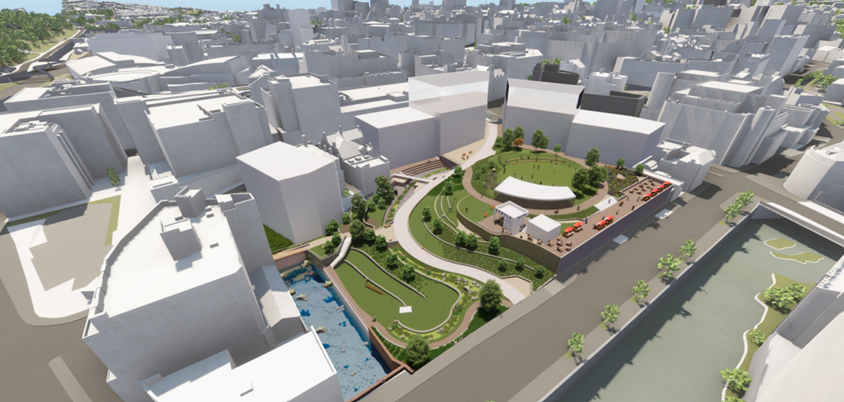Construction company Keltbray has started work on the second phase of development at Sheffield’s Castlegate site.
The company’s operations director Tim Barber said: “Keltbray said: “Keltbray is delighted to be awarded this second phase of work at Castlegate. During the first phase, we were able to learn more about the historic significance of this part of the city. We’re now looking forward to being able to provide recreational facilities, and investment opportunities for people living and working in Sheffield.”
The River Sheaf, which gives the city it’s name, will also be opened up as part of the phase 2 work, making it visible in the city centre for the first time since Victorian times.
Phase two work started in July 2024 with the whole project expected to be completed in early 2026.
Following extensive archaeological research at the former Castle Market site, including unearthing evidence of former steel works dating back to the 19th century and the remains of Sheffield Castle itself, the project now moves to redeveloping it into the park and events space.
During phase one of the project, Sheffield City Council has worked alongside construction company Keltbray with that partnership continuing with the engineering specialists continuing the transformation of the site for phase 2.
Cllr Ben Miskell, Chair of the Transport, Regeneration and Climate Policy Committee at Sheffield City Council, said: “This is a hugely exciting project which has already grabbed the attention of thousands of people not only in Sheffield but right across the country. Unearthing the remains of the city’s history has been fascinating but the work to transform the area from an archaeological site into the finished park really starts now.”
Throughout the process, Wessex Archaeology, who have been uncovering the remains of the castle during phase one, will remain on site to ensure those remains are preserved and ready to go on public display once the project has been completed.
Once complete, the Castlegate site will be transformed into a public park area with remains of the 12th century Sheffield Castle on display for the first time since it was demolished in the late 1600s. A 500 people capacity events space will also be created on the site of a former 17th century bowling green, with heritage interpretation boards and public art giving further nods to the site’s historic past.



